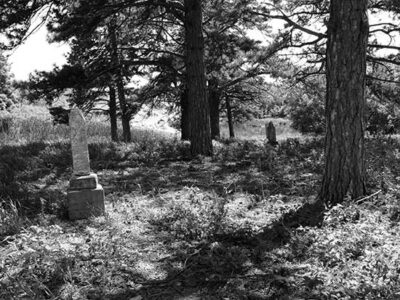In the 1890s, bicyclists led the charge to lay smooth concrete
over America’s byways, unwittingly — and literally — paving the
way for cars to take over. Now suburban sprawl is gobbling up the
countryside, gas prices are at record highs, and analysts are
predicting we’ll hit ‘peak oil’ production — the point at which
demand outstrips supply and prices begin to spiral upward — by
this Thanksgiving. Despite the damage car culture is wreaking on
the health of people and the planet, though, questioning our
addiction to oil is still a media taboo.
Minnesota’s Twin Cities, however, are home to three cartoonists
(and bike evangelists) who aim to take the roads back: Ken Avidor,
Andy Singer, and Roger Lootine. In February, the trio mounted a
joint show at Minneapolis’ One on One Bicycle Studio, a combination
bike shop, espresso bar, and art gallery that serves as a
Midwestern hub of underground bike culture.
More a philosopher and a storyteller than a cartoonist,
Ken Avidor is given to quoting from social critic
Ivan Illich’s 1973 book Energy and Equity. Avidor’s
postapocalyptic drawings of the landscape of American suburbia are
filled with the rusting hulks of dead SUVs and broken golden
arches; on the brighter side, he routinely imagines what a car-free
society might look like. For several months in 2003, for example,
Avidor’s cartoon alter ego Roadkill Bill, a talking squirrel with a
tire track across his belly, visited the imaginary utopia of
Illichville, exploring how it differs from our society: narrow,
pedestrian-friendly streets; organic gardens in every park; rooftop
windmills and solar cells; community kitchens where neighbors cook
together; and bikes — lots of bikes.
Avidor’s latest work, a graphic novel called
Bicyclopolis, is set in 2066, six decades after peak oil
has caused the collapse of North American civilization. The first
chapter, published this spring in the Prague-based magazine Car
Busters (#23), follows a European explorer who travels to North
America and discovers a city rebuilt by the survivors of the great
collapse, primarily bike messengers and Civil War reenactors.
Andy Singer dates his obsession with car
culture to an evening in 1989. Stranded in the parking lot outside
a Grateful Dead concert on Long Island, he realized with horror
that he was surrounded by concrete: ‘Not even a single blade of
grass,’ he recalls, as far as the eye could see. His strip No
Exit appears regularly in numerous alternative weekly papers
and indie magazines. According to political cartoonist Ted Rall,
Singer succeeds ‘where dozens of Pulitzer Prize-winning political
cartoonists fail every day: [He] makes strong statements in a
single panel.’ One classic panel from Singer’s 2001 collection
CARtoons (Car Busters) depicts Earth, crisscrossed with
roads, floating in space over the caption ‘The road to hell is
paved.’
Like the others, Singer praises bicycles with a religious
fervor. One strip titled ‘Da Vinci Revisited’ shows the Renaissance
artist’s famous anatomical study ‘The Vitruvian Man’ riding a
bicycle. The caption lauds the bike’s beauty and ends with ‘Fossil
fuels come from death. Choose life, so that we may keep
living.’
Roger Lootine is the wild child of the bunch.
His art is angrier, grittier, and raunchier, reminiscent of the
psycho-sexual fantasies of cartoonist R. Crumb. While Avidor and
Singer focus on the big picture, portraying futurist narratives or
commenting on global politics, Lootine’s Residue comic
strip, which runs regularly in the Minneapolis weekly
Pulse, ‘comes from a more emotional place,’ he says.
Regular characters include Chump, a punkish bike-riding monkey;
Crunchy, a homicidal cockroach; Jesus, a pot-smoking messiah; and
The Man, a porcine cop who continually harasses Chump for riding on
the road.
Many of Lootine’s cartoons are autobiographical, depicting his
run-ins with irate drivers and police. ‘I get chased down by
drivers a lot,’ he says. Which might help explain why Lootine is
fond of dropping leaflets about the legal rights of bicycles to
share the road into drivers’ open windows as he rides past them.
Asked where his passion for cycling comes from, Lootine replies,
‘It’s the only time I feel free.’
Tell Me More
For additional work by these artists:
Ken Avidor
www.avidorstudios.com
Roger Lootine
P.O. Box 580848,
Minneapolis, MN 55458
Andy Singer
www.andysinger.com




